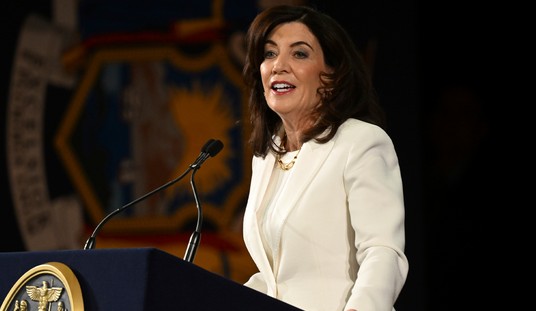Today the NY Times published a story which presents claims from an outside agency that New York City’s child services agency is racist. The evidence for this comes from a report which the agency ordered in 2020 but never released. [emphasis added]
A draft report, based on a 2020 survey of more than 50 Black and Hispanic frontline caseworkers and agency managers in Brooklyn and the Bronx, along with many parents and advocates, described a “predatory system that specifically targets Black and brown parents” and subjects them to “a different level of scrutiny.”
In New York’s child welfare system, where Black families are seven times as likely as white families to be accused of child maltreatment and 13 times as likely to have their children removed, “race operates as an indicator of risk,” the report concluded.
First, keep those numbers in mind. Second, let’s just state up front that the decision to take a child away from his or her family is one of the most consequential and potentially traumatizing decisions any agency can make. And on their face, these numbers certainly sound quite disparate.
But it’s not quite as simple as that. Because, as the story points out, neglect and abuse often correlate with poverty. Since black families are more likely to live in poverty, they are also more likely to be investigated for neglect and abuse. In other words, this is not a situation where a perfectly fair, anti-racist organization will be investigating numbers of families that perfectly match the percentage of the city that group represents. To the author’s credit he acknowledges this problem.
Because poverty is correlated with higher rates of neglect and abuse, it is difficult to say how much the disparities in the system can be directly linked to income or to race.
But according to the survey, A.C.S. workers and other participants said that rather than starting from a presumption of innocence, “Black and brown parents are treated at every juncture as if they are not competent parents capable of providing acceptable care to their children.”
And that brings us to another big admission in the story. The report comes from a consulting firm with a clear agenda.
The report, prepared by a consulting firm that helped governments design more racially equitable systems, was based on conversations with those who chose to participate rather than on a quantitative survey.
To be clear, it’s entirely possible the system is racist but I think in this case you also have to recognize that the report’s authors probably have some strong feelings about what equity would look like. They also openly engaged in selection bias, choosing to listen to “Black and/or Brown” people exclusively. Here’s a sample of the draft report:
Galvanized by the Movement for Black Lives following the police murders of George Floyd and Breonna Taylor, New York City residents coalesced local social justice organizing effortsto call for divestment from carceral systems, generally, and to defund the NYPD, in particular…
It is against this backdrop that the National Innovation Service (NIS) developed a research project that centers lived experience as subject matter expertise and considers social conditioning4, in order to consider challenges to and opportunities for the New York City Administration for Children’s Services (ACS) to become an antiracist organization. NIS conducted our research through the intersectional lens of race, gender, and class to present generalizable themes that build from Black and Brown families understanding of what it means to be safe and to thrive…
In order to appreciate how race and racism show up in an individual’s experience with ACS, we explicitly recruited and spoke with people who identify as Black and/or Brown. We draw on their experience below, and anywhere we refer to parents, advocates, and staff, we are referring to Black and Brown parents, advocates, and staff.
I haven’t read the entire report but from what I have read, it seems the focus is on the ACS being “safe” for families being investigated under the assumption that doing so will result in thriving children. But midway through the Times drops this blockbuster factoid:
Black families in New York City are also more likely than Hispanic and Asian families to be accused of neglect or abuse or to have their children removed, even though Hispanic and Asian families have higher poverty rates. A New York Times analysis of 83 child homicides from 2016 to 2022 found that Black children in the city were killed by family members at about seven times the rate for white and Asian children and three times the rate for Hispanic children.
You may want to read that over that paragraph a couple times to fully get it. Child neglect and abuse correlate with poverty but black families are still accused more often. And from there the Times rolls right into a statistic about murdered children which also shows a large racial gap, one which presumably isn’t the result of false reports or racism at ACS. The way they’ve made this one paragraph suggests it’s part of a single thought but the Times doesn’t explain what that thought might be. Let me give it a shot.
Remember those figures I highlighted at the start? “Black families are seven times as likely as white families to be accused of child maltreatment,” the story said. Maybe it’s just a coincidence that the death of children is also seven times higher. I don’t assume there’s a straight line between child neglect and abuse and child murder but I also don’t think you can say there’s no correlation. Children who are murdered by their families were almost certainly severely neglected and abused before they died.
My point is that if we’re going to examine disproportionate ACS examinations of families by race, we can’t necessarily assume neglect and abuse cases are going to be evenly divided among those groups. The Times factoid on murdered children suggests they’re probably not. It’s sort of jarring how the Times drops those figures and then moves on as if it’s not relevant to the topic at hand.
Update: I meant to include this but ran out of time. Nearly all of the top comments seem very skeptical of the premise of this story. One of the top comments notes this is a catch-22.
If ACS moves to protect neglected and abused children they are attacking black and brown families.
If ACS leaves a child in an abusive environment they are incompetent lazy civil servants who don’t care about black and brown children.
Another:
I have a different perspective on this. More scrutiny of parents is more protection of children. I want all children, non Hispanic white included, to have access to a highly responsive child protection agency.
Kids needs come before equity concerns.
A reader in New York was struck by the same factoid I highlighted above.
The analysis of child homicides showed Black children are killed by family members at 7 times the rate for white and Asian kids and 3 times the rate for Hispanic kids.
Doesn’t that fact alone say that Black kids are at greater risk–independent of poverty, since many Asian and Hispanic families are also poor?
One more. This guy is asking what the ultimate goal is here.
A child welfare system can err on the side of making more false negatives, i.e. pulling back when a family is accused of abuse or neglect when they should intervene because the abuse is real. Or, they can favor more false positives, aggressively intervening at the earliest signs of abuse or neglect when the family is actually doing everything right.
One course of action will result in more children dying because they are in an unsafe home, the other course will result in their parents experiencing racial prejudice and feeling bad about it.
Our choice in this dilemma says a lot about our societal priorities.
There’s a surprising amount of clear thinking at the NY Times these days, it’s just mostly in the comments section.







Join the conversation as a VIP Member